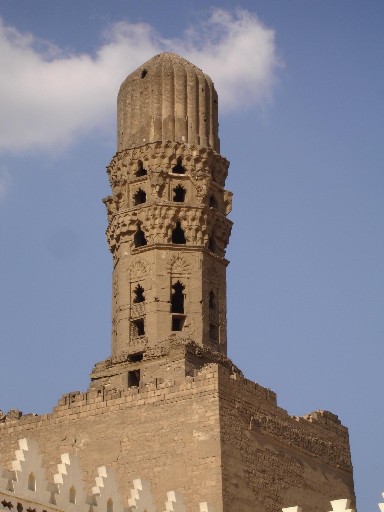|
1020s
The 1020s was a decade of the Julian Calendar which began on January 1, 1020, and ended on December 31, 1029. Significant people * Al-Qadir caliph of Baghdad * Al-Hakim bi-Amr Allah caliph of Cairo * Henry I of France * Avicenna Ibn Sina ( – 22 June 1037), commonly known in the West as Avicenna ( ), was a preeminent philosopher and physician of the Muslim world, flourishing during the Islamic Golden Age, serving in the courts of various Iranian peoples, Iranian ... References {{DEFAULTSORT:1020s ... [...More Info...] [...Related Items...] OR: [Wikipedia] [Google] [Baidu] |
Al-Qadir
Abu'l-Abbas Ahmad ibn Ishaq (; 28 September 947 – 29 November 1031), better known by his regnal name al-Qadir (, , ), was the Abbasid caliph in Baghdad from 991 to 1031. Born as an Abbasid prince outside the main line of succession, al-Qadir received a good education, including in the tenets of the Shafi'i school of Islamic jurisprudence. He rose to the throne after his cousin, at-Ta'i, was deposed by the Buyid ruler of Iraq, Baha al-Dawla. Although still under Buyid tutelage and with limited real power even in Baghdad, al-Qadir was able to gradually increase the authority of his office over time, exploiting the rivalries of the Buyid emirs and the caliphate's role as a fount of legitimacy and religious guidance. Al-Qadir was able to nominate his own heirs without interference by the Buyids, and was instrumental in securing control of Baghdad for the Buyid emir Jalal al-Dawla. At the same time, he sought champions further afield, notably in the person of Mahmud of Gha ... [...More Info...] [...Related Items...] OR: [Wikipedia] [Google] [Baidu] |
Al-Hakim Bi-Amr Allah
Abu Ali al-Mansur (; 13 August 985 – 13 February 1021), better known by his regnal name al-Hakim bi-Amr Allah (), was the sixth Fatimid caliph and 16th Ismaili imam (996–1021). Al-Hakim is an important figure in a number of Shia Ismaili sects, such as the world's 15 million Nizaris and 1–2 million Musta'lis, in addition to 2 million Druze. (''Which page?'') Histories of al-Hakim can prove controversial, as diverse views of his life and legacy exist. Historian Paul Walker writes "Ultimately, both views of him, the mad and despotic tyrant (like Germanic and Roman despots) irrationally given to killing those around him on a whim, and the ideal supreme ruler, divinely ordained and chosen, whose every action was just and righteous, were to persist, the one among his enemies and those who rebelled against him, and the other in the hearts of true believers, who, while perhaps perplexed by events, nonetheless remained avidly loyal to him to the end." Appraisals of ... [...More Info...] [...Related Items...] OR: [Wikipedia] [Google] [Baidu] |
Henry I Of France
Henry I (4 May 1008 – 4 August 1060) was King of the Franks from 1031 to 1060. The royal demesne of France reached its smallest size during his reign, and for this reason he is often seen as emblematic of the weakness of the early Capetians. This is not entirely agreed upon, however, as other historians regard him as a strong but realistic king, who was forced to conduct a policy mindful of the limitations of the French monarchy. Reign A member of the House of Capet, Henry was born in Reims, the son of King Robert II (972–1031) and Constance of Arles (986–1034). In the early-Capetian tradition, he was crowned King of France at the Cathedral of Reims on 14 May 1027, while his father still lived. He had little influence and power until he became sole ruler on his father's death four years later. The reign of Henry I, like those of his predecessors, was marked by territorial struggles. Initially, he joined his younger brother Robert, with the support of their mother, in a ... [...More Info...] [...Related Items...] OR: [Wikipedia] [Google] [Baidu] |
Avicenna
Ibn Sina ( – 22 June 1037), commonly known in the West as Avicenna ( ), was a preeminent philosopher and physician of the Muslim world, flourishing during the Islamic Golden Age, serving in the courts of various Iranian peoples, Iranian rulers. He is often described as the father of early modern medicine. His philosophy was of the Peripatetic school derived from Aristotelianism. His most famous works are ''The Book of Healing'', a philosophical and scientific encyclopedia, and ''The Canon of Medicine'', a medical encyclopedia which became a standard medical text at many medieval European University, universities and remained in use as late as 1650. Besides philosophy and medicine, Avicenna's corpus includes writings on Astronomy in medieval Islam, astronomy, Alchemy and chemistry in medieval Islam, alchemy, Geography and cartography in medieval Islam, geography and geology, Psychology in medieval Islam, psychology, Islamic theology, Logic in Islamic philosophy, logic, Mat ... [...More Info...] [...Related Items...] OR: [Wikipedia] [Google] [Baidu] |

